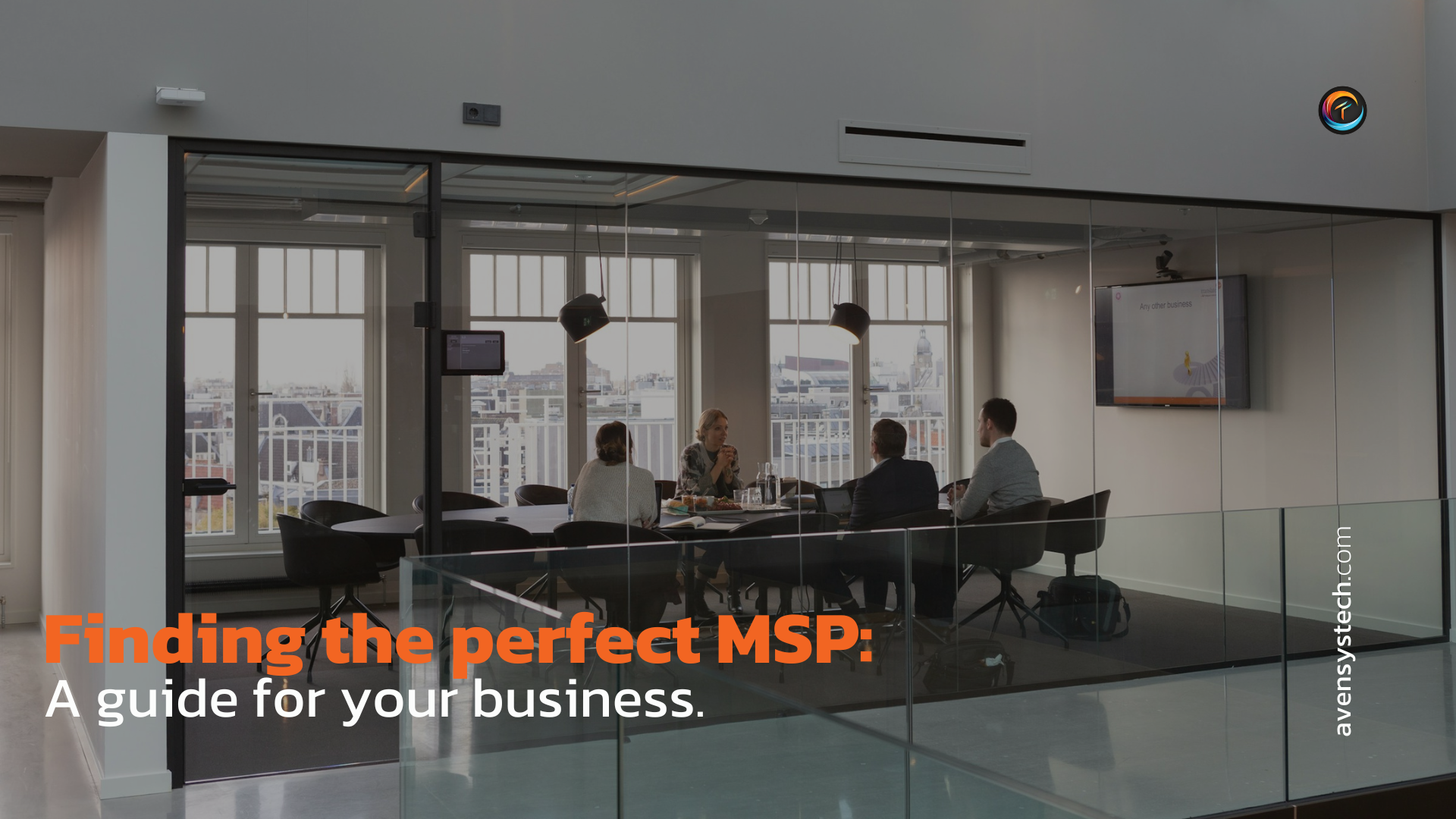
For many growing businesses, outsourcing IT through a Managed Service Provider (MSP) can be a game-changer. But how do you find an MSP that truly fits your needs? In this guide, we’ll walk you through the process of choosing the perfect MSP, from understanding why it matters, to preparing a solid RFQ and spotting red flags.
Choosing the right MSP is vital for your business’s success. An MSP will be entrusted with your entire IT infrastructure, so you need a partner you can rely on. The right provider will keep your systems running smoothly, protect your data, and support your team’s productivity. Pick the wrong one, however, and you could face disruption, downtime, or even security breaches, outcomes no business can afford.
Think of an MSP as an extension of your team. If they’re reliable and trustworthy, you’ll have peace of mind knowing someone has your back 24/7. But an unreliable or unresponsive MSP can cause headaches, from unresolved IT issues piling up to potential financial losses when problems aren’t fixed properly the first time. That’s why doing your homework upfront is so important, it ensures you partner with a provider who will support your business goals rather than hold you back.
In short, the MSP you choose can either drive your business forward or drag it down. So, let’s make sure it’s the former by carefully evaluating your options.
The first step in finding your ideal MSP is to assess what your business actually needs. Every company is different, you might require round-the-clock helpdesk support, expertise in cloud migrations, stronger cybersecurity, or industry-specific compliance knowledge. Take time to map out your requirements and pain points. What IT challenges are you facing? Which tasks do you want to offload to a provider? Where could outside expertise make the biggest impact?
Start by making a list of all the IT services and functions in your organisation. Identify which ones you handle in-house and which you’d prefer an MSP to manage. Be as specific as possible, for example, “manage our Office 365 licenses and backups” or “provide on-call support for our remote workers”. This clarity will help you communicate your needs clearly to potential providers. (Tip: To ensure you cover everything, use a requirements-gathering checklist. Avensys Tech’s MSP Hunter’s Guide– includes a handy checklist to help you capture all your IT needs.)
It’s also wise to think about the future. As your business grows, your IT demands will evolve. Scalability and flexibility are key, the MSP you choose should be able to scale their services and adapt to new requirements over time. Maybe today you just need help with network monitoring, but next year you might undertake a cloud migration or open a new office. Look for a provider who can grow with you.
Once you know your needs, consider the key qualities your MSP should have to meet those needs. Here are some MSP selection criteria that should be on your radar:
By defining your needs and knowing the qualities to seek in a provider, you’ll have a solid foundation to start your MSP hunt. Next, it’s time to translate those requirements into a clear request that potential partners can respond to.
With a clear idea of what you’re looking for, the next step is to formally reach out to potential MSPs. One of the best ways to do this is by issuing a Request for Quote (RFQ) or proposal. Essentially, an RFQ is a document that outlines your requirements and asks vendors to detail how they would meet those needs (along with pricing). Using an RFQ helps you gather consistent information from all candidates, making it easier to compare them side by side.
Here are some RFQ best practices to get quality responses:
Creating a comprehensive RFQ can be a daunting task, especially if it’s your first time. To make it easier, Avensys Tech has prepared templates that you can use. As part of our MSP Hunter’s Guide, you can download a general MSP RFQ template that covers all the bases. We’ve also included a Microsoft 365-specific RFQ template for organisations seeking help with their M365 environment ensuring you ask all the right cloud and licensing questions. These tools are designed to save you time and help you get apples-to-apples proposals from vendors.
When your RFQ is ready, send it to a shortlist of potential MSPs (perhaps 3-5 providers that came up in your research or via recommendations). Give them a reasonable deadline to respond and be available for any clarification they might need. The quality of proposals you get back, and how vendors communicate during this process, will tell you a lot about who is serious about winning your business.
Not all MSPs are equal, and it’s important to spot warning signs early. As you review RFQ responses and speak with prospective providers, keep an eye out for these red flags:
By staying alert to these red flags, you can avoid wasting time with the wrong providers and narrow your choices to the MSPs that deserve your trust.
One of the most common and costly mistakes businesses make when switching MSPs is forgetting to give notice to their existing provider (or giving it incorrectly). Some contracts have very specific terms around how and when notice must be given and if you miss the window, you could be automatically tied in for another year or more.
Before going out to market, check your current agreement carefully. Look for:
If you’re unsure, speak to your current provider and confirm the correct process in writing. Even if you’re not yet ready to switch, it’s good practice to diarise your contract renewal date and set reminders to avoid being caught off guard. That way, you stay in control of your options and won’t be forced to keep working with a provider who no longer meets your needs.
Selecting an MSP is a big decision, but you don’t have to navigate it alone. Avensys Tech is here to help make the process easier and to be that reliable IT partner your business deserves. We understand what businesses in the UK need from their IT, and we pride ourselves on ticking all the right boxes as a top-tier MSP: from our highly certified technical team and responsive support staff to our flexible service packages tailored to each client.
If you’re unsure where your current IT stands or what you should prioritise, we offer a Digital MOT, a comprehensive IT systems audit that acts like a health check for your technology. Much like an annual MOT for your car, our Digital MOT examines your IT infrastructure from top to bottom, identifies hidden issues or inefficiencies, and gives you a clear report with practical recommendations. It’s an excellent way to uncover any gaps that a new MSP should address (or to ensure your existing setup is running optimally). Many of our clients find that a Digital MOT provides the clarity they need before making strategic IT decisions.
Beyond assessments, Avensys Tech can step in as your long-term MSP partner. Whether you need fully managed IT services or a co-managed approach alongside your internal team, our focus is on being proactive, transparent, and responsive. We don’t believe in one-size-fits-all solutions, instead, we align technology to your business goals, so you get the maximum benefit from your IT investment. And with our approachable, jargon-free style, you’ll always know what’s going on without needing an encyclopaedia of tech terms.
Ready to find out how the right MSP can transform your business? Let’s have a chat. Reach out to Avensys Tech today, and we’ll be happy to discuss your needs, answer any questions, and even walk you through our free MSP Hunter’s Guide resources (including the RFQ templates and checklists mentioned earlier). With the right guidance and the right partner, you can turn your IT from a source of stress into a driver of growth and success.
We’re here to help you make that happen, every step of the way.

